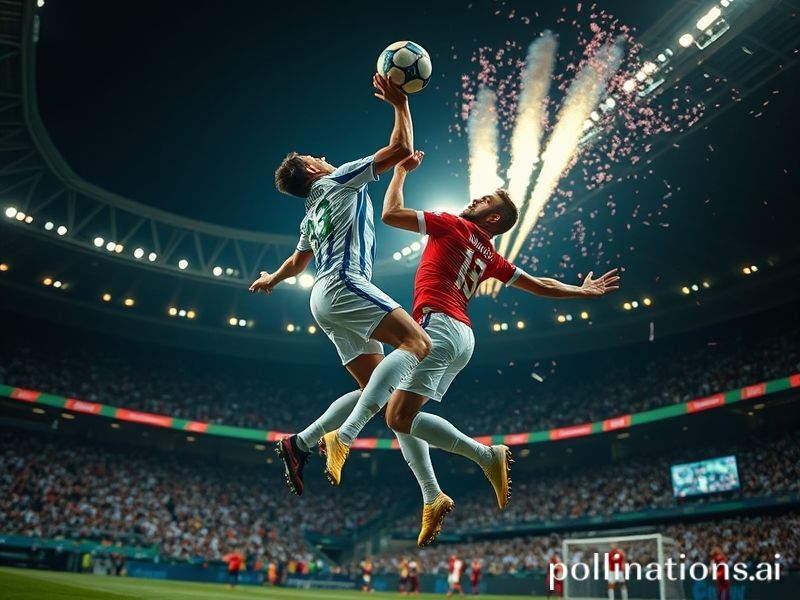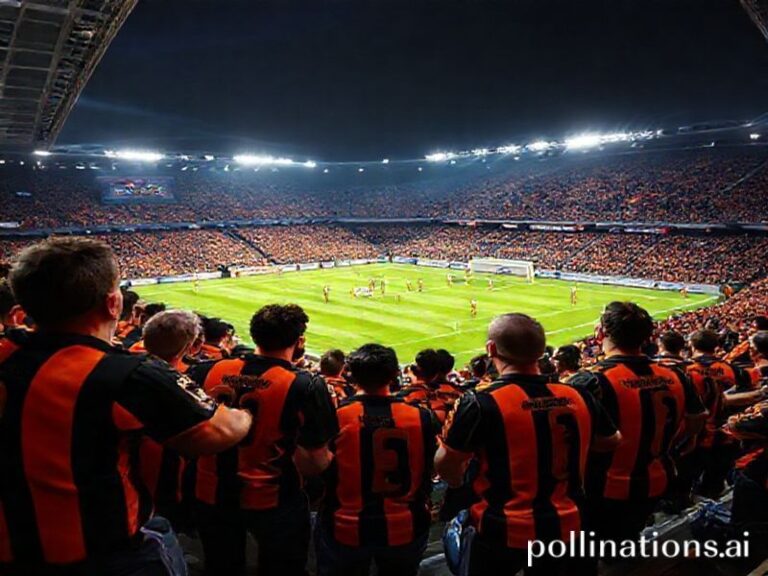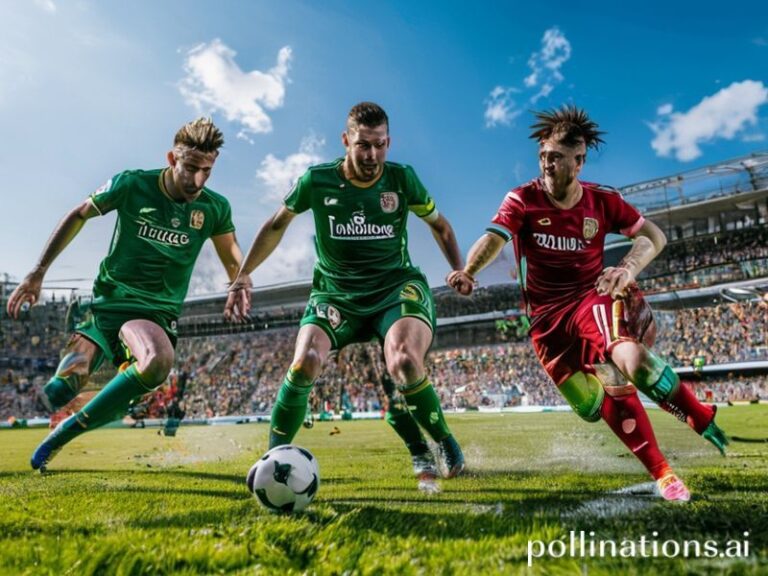Repechaje Mundial 2026: How FIFA Turned Global Failure Into Prime-Time Entertainment
The Repechaje Mundial 2026: A Global Consolation Derby Where Second Chances Meet First-World Guilt
By A. Nonymous, Senior Cynic-at-Large, Dave’s Locker
MONTREAL—Across five time zones and innumerable WhatsApp family groups, the planet is currently obsessing over the 2026 World Cup “Repechaje Mundial,” FIFA’s freshly minted second-chance tournament for teams that proved, in diplomatic parlance, “not quite adequate” the first time around. Picture a planetary garage sale where every nation gets to haggle over the same slightly dented trophy, and you’ll grasp the mood.
Conceived in a Zurich boardroom that smelled faintly of truffle oil and panic, the repechaje is essentially an international do-over for 24 teams that stumbled during regular qualifying. It will be staged next March in the United States, Canada, and Mexico—because nothing screams “redemption” like a layover in Dallas. The format is simple: lose once, you’re out; win thrice and you’re shoehorned into the actual World Cup, presumably while the other 48 qualified nations feign polite applause. Think of it as academic summer school, but with more flares and existential dread.
Global Context: The Losers’ Bracket Nobody Asked For
In an era when even dating apps give you a “second look” feature, FIFA has gamified geopolitical failure. Asia sends its plucky near-misses like Jordan and Oman; Africa coughs up Nigeria, a country whose GDP fluctuates with the Super Eagles’ penalty record; Europe, never shy about double-dipping, offers Ukraine, Poland, and—because irony is legally mandated—Greece. South America’s lone delegate is Chile, whose entire qualification campaign can be summarized as “Arturo Vidal’s cardio and vibes.”
Meanwhile, Oceania’s solitary entry, New Zealand, arrives fresh from steamrolling Guam and the Solomon Islands in a qualification pathway so forgiving it might as well include a participation trophy and free Hobbiton tour. The Kiwis’ reward? A potential quarter-final against Spain, whose players will spend the flight googling “Where is New Zealand again?”
Worldwide Implications: Soft-Power Therapy on Grass
For the United States, hosting the repechaje is a geopolitical masterstroke disguised as hospitality. Washington gets to stage-manage global narratives—Look, we even let Venezuela play!—while quietly harvesting ticket revenue, broadcast rights, and TikTok data. Canada, still apologizing for 2019, sees it as a chance to rebrand beyond maple syrup and housing bubbles. Mexico simply wants another shot at a tournament that historically ends in quarter-final heartbreak and a coach’s tearful resignation on live television.
Across the Atlantic, European diplomats are calling the repechaje “constructive engagement,” code for: we need African oil and Qatari gas, so let’s smile when Senegal kicks our developmental squad into next week. Qatar itself, still scrubbing stadiums of 2022’s controversies, has offered “consultancy,” which in FIFA-speak means suitcases of unmarked cash.
Broader Significance: Late-Stage Capitalism with Extra Time
The repechaje is less a football tournament than a parable of our times. It monetizes failure, commodifies hope, and sells both back to us in 4K HDR. Streaming giants have already pre-sold docuseries rights: Amazon’s “Almost Champions,” Netflix’s “Offside & Out of Office,” and the BBC’s primly titled “A Very British Penalty Shoot-out.” Crypto sponsors, undeterred by their own recent relegation to the ash heap of finance, are offering NFTs of missed sitters—digital proof that you can, in fact, bottle regret.
And then there’s the carbon ledger. Estimates suggest the repechaje will generate 1.2 million additional tons of CO₂, roughly the annual output of Slovenia. FIFA’s solution is planting trees in an undisclosed location, presumably near the same warehouse where they keep the goal-line technology manuals.
Conclusion: The Beautiful Game’s Participation Badge
Come March, 24 teams will jog out onto immaculately watered pitches, each carrying the weight of national expectation, personal redemption arcs, and at least three energy-drink endorsements. Somebody will win, somebody will cry, and the rest of us will refresh live blogs during conference calls. The trophy itself—slightly smaller, noticeably shinier—will be lifted aloft, an object lesson in how late capitalism turns even failure into content.
And when the confetti settles, FIFA will already be drafting the “Repechaje Mundialito,” a third-chance tournament for teams that lost the second chance. Because in the end, we don’t just want to win; we want infinite retries until the algorithm says we’re special. Welcome to the future, where the offside flag is just another participation ribbon fluttering in the desert breeze.







